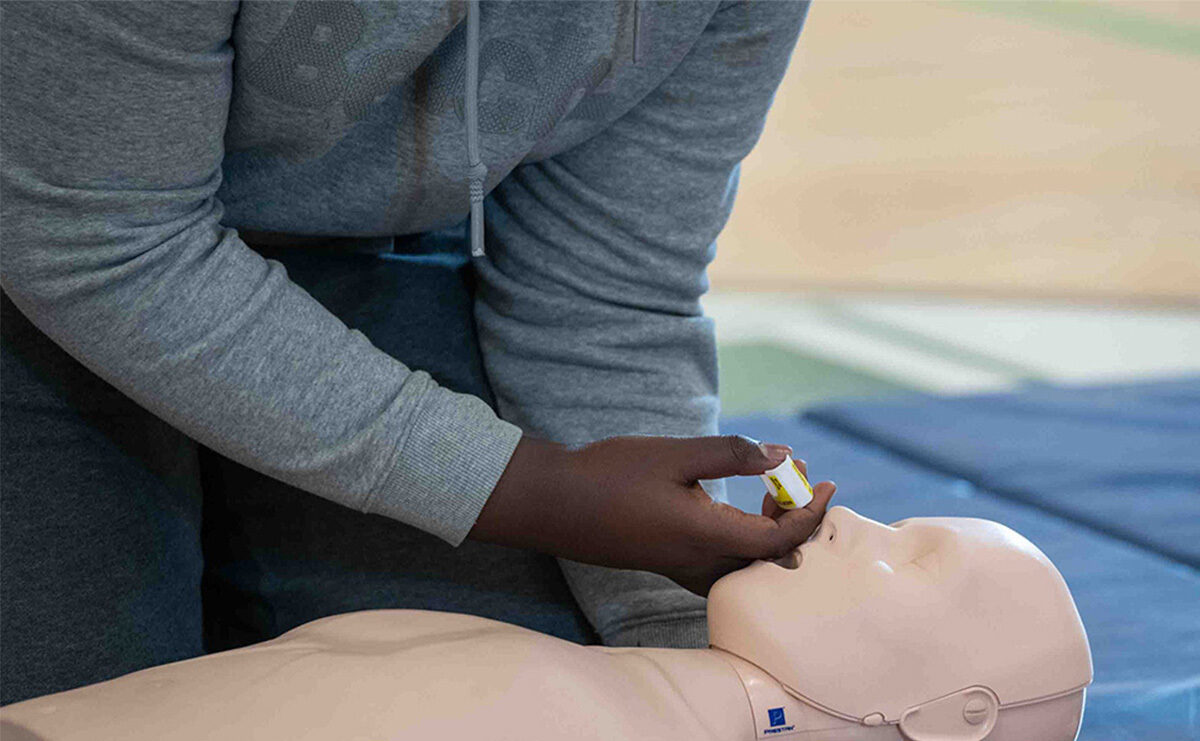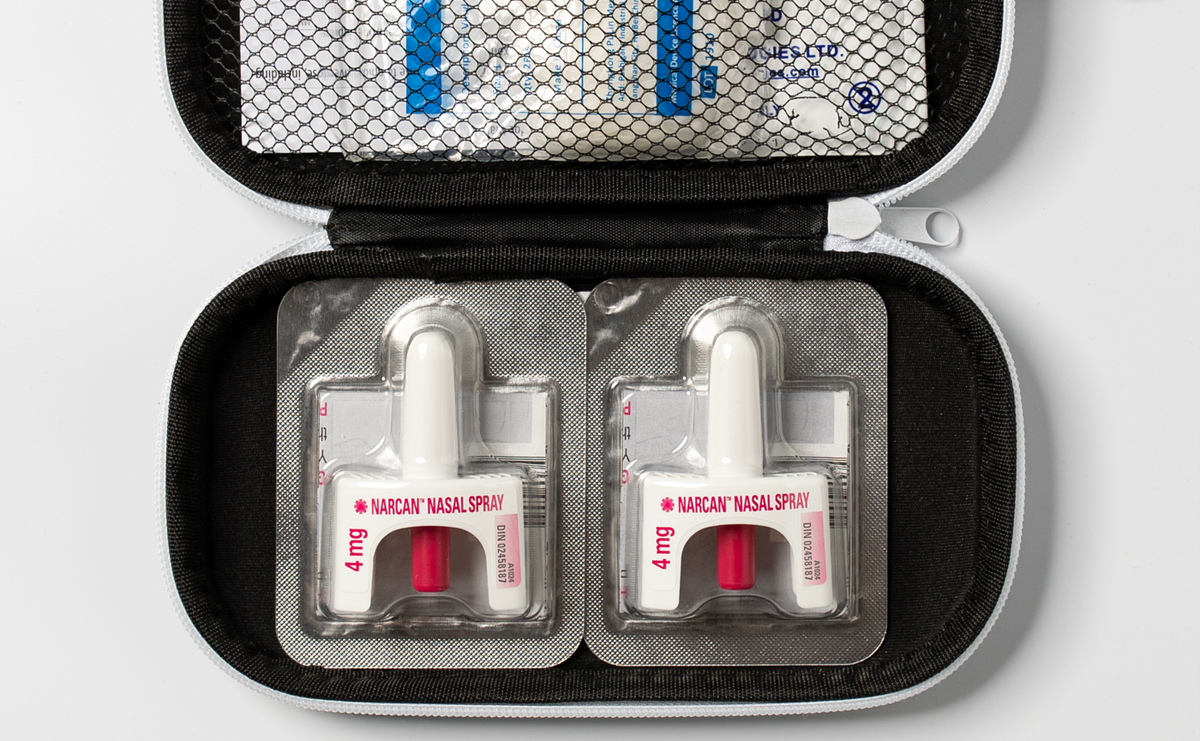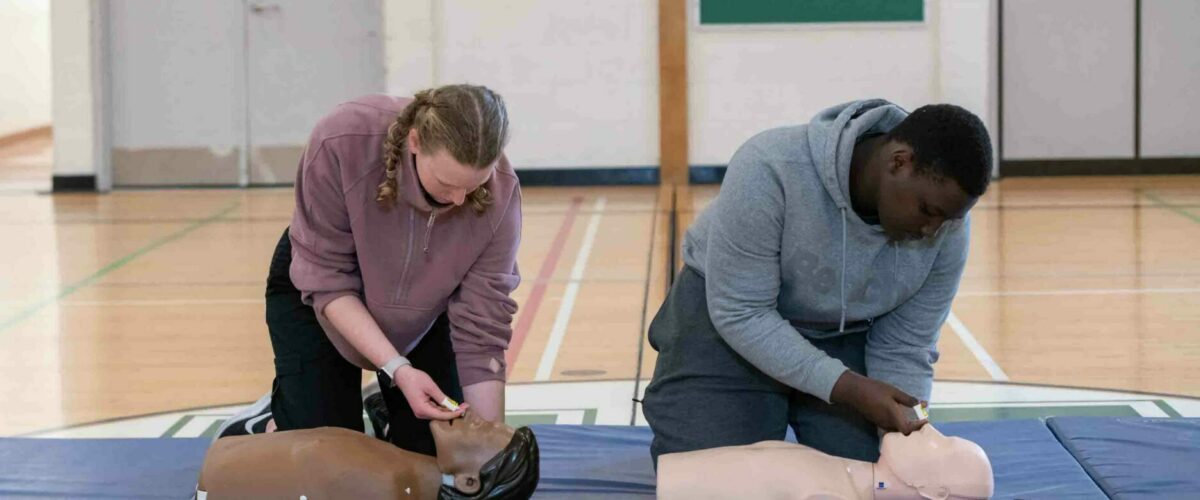The Opioid Overdose Response Training Enhancement
Enhancing ACT’s High School CPR and AED Program with opioid awareness and opioid overdose response training is a next step in empowering youth to respond to life-threatening emergencies. ACT’s response to the opioid crisis empowers high school teachers to add the Opioid Overdose Response Training to the current CPR training, enhancing students’ lifesaving toolbox.
The training teaches students:
- What are opioids and how do opioid overdoses happen
- What is Naloxone and how does it work
- How to recognize a suspected opioid overdose
- How to respond to a suspected opioid overdose, including calling 911 quickly, performing CPR, if needed, and administering nasal Naloxone spray, if available
The opioid-associated emergency module enables teachers to provide the theory portion of the education in an eLearning format to students as a self-paced learning tool. Teachers then provide the practical training portion to students in the classroom.
The ACT Foundation gratefully acknowledges the contribution of Health Canada’s Substance Use and Addictions Program (SUAP) for the ACT Opioid Overdose Response Training program. The views expressed herein do not necessarily represent the views of Health Canada.


Statistics on the Opioid Crisis in Canada
Health Canada statistics:
- 94% of opioid overdose deaths happen by accident.
- Young Canadians aged 15 to 24 are the fastest-growing population requiring hospital care from opioid overdoses.
Other Public Health Agency of Canada statistics:
https://health-infobase.canada.ca/substance-related-harms/opioids-stimulants
Other Resources
About Opioids and the Opioid Crisis in Canada
Canada’s Opioid Crisis, Government of Canada fact sheet
Opioids, Government of Canada web portal
Opioids, Canadian Centre on Substance Use and Addiction website
What are Opioids?, Canadian Centre on Substance Use and Addiction poster
The KNOW MORE tour aims to engage teens and young adults on the facts surrounding the overdose crisis, opioids, fentanyl, Naloxone, and stigma. This free, interactive virtual experience features activities and resources designed to educate students on the risks associated with opioid use, how to reduce harms (e.g., knowing how to recognize and react to an opioid overdose) and the importance of reducing the stigma associated with addiction.
Recognizing and Responding to an Opioid Overdose
Opioid Overdose, Government of Canada web portal
"Carry It” Toolkit to Prevent Opioid Overdose, Canadian Mental Health Association
Calling 911 in Drug Poisoning Situations, CCENDU Bulletin
About the Good Samaritan Drug Overdose Act, Government of Canada website
Myths and Facts About Opioids
Dispelling Myths About Opioids fact sheet, Canadian Mental Health Association
How to Give Naloxone
Administering Naloxone spray video, Canadian Pharmacists Association
Access to Naloxone Across Canada
Where to get Naloxone in your province or territory, Health Canada website

Learn more on how to respond to a suspected opioid overdose
If you are a member of the general public and are interested in learning more about how to respond to a suspected opioid overdose, and CPR and AED training, you can contact the St. John Ambulance, Canadian Red Cross, Heart and Stroke Foundation of Canada, or your local CPR training agencies.

